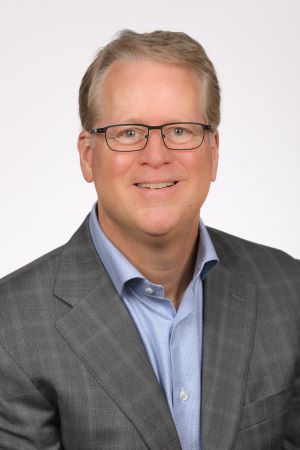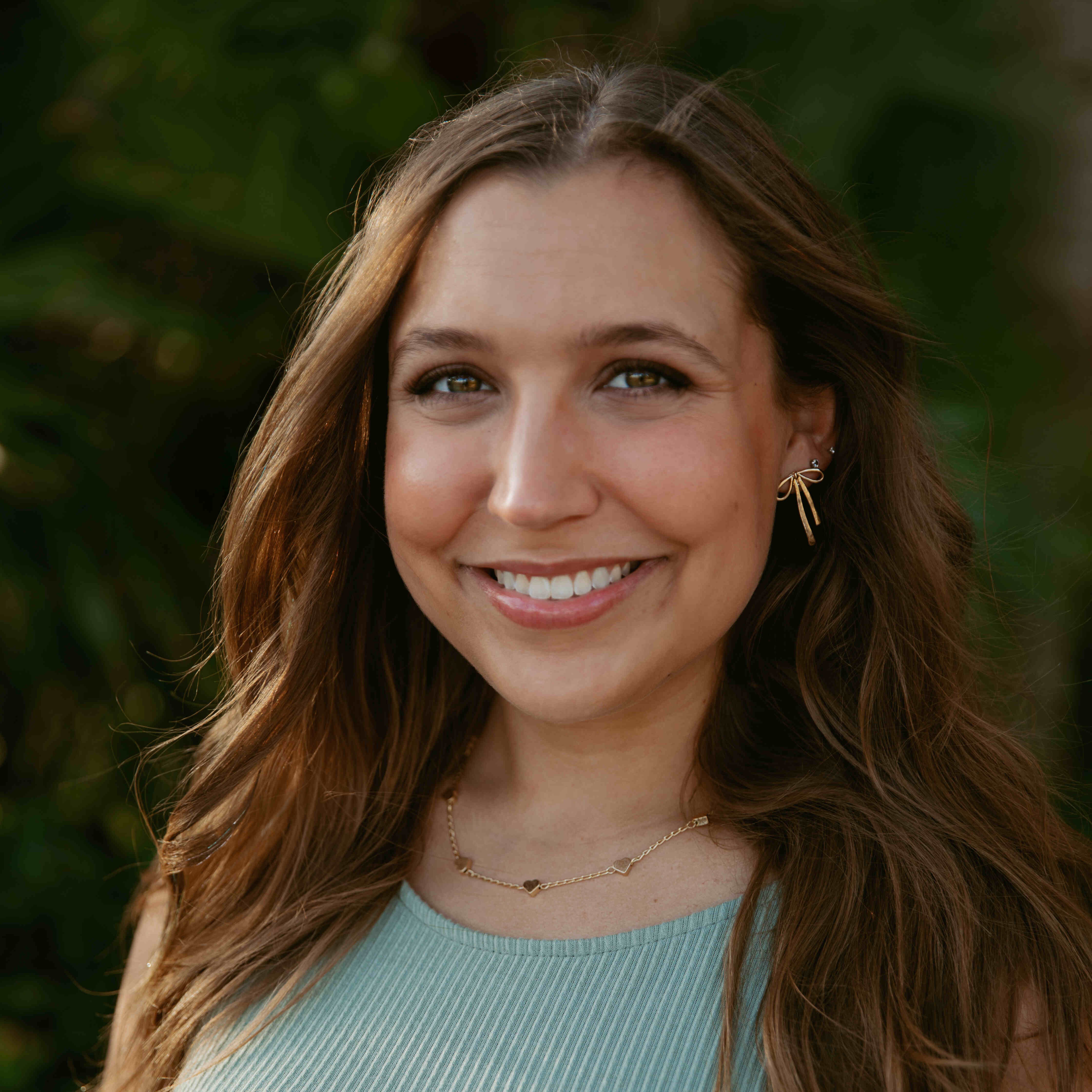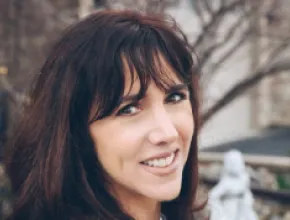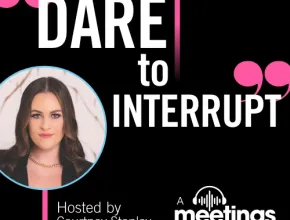Live From Louisville: A Conversation With MPI President & CEO Paul Van Deventer
This year's MPI World Education Congress (WEC) is taking place May 20-22 in Louisville, Kentucky.
On day two of the event, Meetings Today's Taylor Smith sat down with MPI President and CEO Paul Van Deventer to talk WEC numbers, industry trends, the rise of AI and what's next for MPI.
[Related: Live From Louisville: MPI Academy's Jessie States on Efforts in Education]
Listen:
More Meetings Today Podcasts
Transcript:
Editors note: The following transcription was facilitated by AI program Otter.ai and proofed by our editors. Although it is very accurate, there inevitably will be some mistakes, so please consider that when reading. Thank you.

Taylor Smith
Hello and welcome to this Meetings Today podcast. My name is Taylor Smith, content developer destinations and features for Meetings Today.
Usually when I record podcasts I'm sitting behind my desk at my at home office back in Chicago. But today is a special day for this podcast. I'm coming to you live from the 2024 MPI World Education Congress in Louisville, Kentucky, and I have a very special guests with me. It is my absolute pleasure to be speaking today with MPI president and CEO Paul Van Deventer, who is here today to talk about the events taking place at WC Louisville, as well as some industry trends you've seen and how associations like MPI are offering to help prepare the next wave of professionals.
Thank you so much for joining me today.
Paul Van Deventer
It's a pleasure. And I'm so excited you're getting to experience WEC
Taylor Smith
Yes, my first time yeah, one of the 50% of first-timers.
Paul Van Deventer
50% of our 2000 attendees have their first time here this year…
Taylor Smith
Which is something that, you know, it stood out to me during a press conference that just wrapped up. And I wanted to kind of give our listeners today a bit of a recap of what we discussed at the press conference. So, can you share an overview of those stats and how you're seeing a 34% increase in last year's WEC and attendees as well?
Paul Van Deventer
Well, we've been on a really strong resurgence over the last couple of years coming out of the pandemic. And I think it's a combination of one, the just general health of the economy overall, which has been really reflective in beneficial to the business events industry.
We're seeing events back at levels that they were in 2019, we're seeing future bookings be extremely strong. And as part of that, the overall impact on MPI in our community is that we're seeing a natural growth along with that health of the industry.
One area that's been really interesting to follow is, with the pandemic, our industry lost about 80% of its workforce.They were laid off, lost their jobs. And then as organizations began to rehire and rebuild their workforce, they found that a lot of the people that were in the industry found something new or retired. And they've had to find new people.
And so, we're now seeing statistics that as high as 70% of this workforce is new in the last three years to our industry…
Taylor Smith
Including me!
Paul Van Deventer
Including you. And so, what do individuals and professionals need? They need to learn about the industry, they need to build networks, they need to grow professionally. And that's what an association offers.
So, I think our growth as an association, in our community size, our growth in members, our growth in attendance at not just WEC but all of our educational programming and events, is a natural evolution of the roles associations play in education and professional development, and a resurgence of new people in this industry.
Taylor Smith
And what a perfect segue into my next question for you, which has to do with workforce development. It's always a hot topic, especially, as you mentioned, when we’re in an industry that's going through so much adapting right now. With 70% of us being new faces, our colleagues are less experienced, less skilled and younger. And I realize this sounds a bit like me, you know, I'm still learning so much about the industry. But there was that massive turnover, like you said, so how can we prepare and upskill these individuals and what are associations like MPI doing to help them out?
Paul Van Deventer
Well, I look at the marketplace and those dynamics you talk about, and this is the role associations are set up to fill.
Associations, by their very nature, are professional, especially professional associations. They’re professional development organizations. We are adult education organizations. And when you come into a particular industry, an association that is established to support that industry is the natural place to turn to. And that's for pure traditional education.
But I think even more importantly, it's for building those professional contact networks, and probably even more so with people who are new to an industry. And I think more so with your generation and other younger generations there. They tend to…you tend to interact differently than we may have in my generation. And the importance of creating communities, and building your own communities and networks together is so important. And associations can enable that.
We just need to think of ourselves a little bit differently and approach a little bit differently. And that's why at MPI, we've been really getting away from focusing just completely on our membership count and our member numbers and talking about the size of our community.
Taylor Smith
Yes. Which I thought was such an interesting stat during the conference today, where you have 13,000 plus members but a community of almost 120,000. Who is this part of the community?
Paul Van Deventer
We've measured that on a 12-month rolling calendar; individuals who proactively got involved with MPI. So, they could become a member or they are a member; they could attend one of our chapter events; chapter conferences; they've gone to one of our educational programming.
So, somehow, in a proactive way, they are engaging with MPI. And many of these individuals are engaging in multiple levels. They're involved at our chapters, they're going to 2, 3, 4 events a year. They're coming to some of our conferences, they're participating as hosted buyers, they're going to our educational programming, but they may just—they don't see the need to be a member.
Or in some cases, they may see that as almost something…that they won't be locked into a membership. but they really love our community. They love being associated with peers who have very similar needs and issues, and they can share best practices and learnings together.
Taylor Smith
What are some of the benefits to being a member, though, if you're a part of the community that that opens up, especially for young professionals who are looking to make those connections and find the education opportunities?
Paul Van Deventer
Well, it may sound a little bit self-serving, but there's a symbiotic relationship between MPI and our members. And that is that we are at the core a volunteer-based organization. So, we're heavily dependent on our volunteers. And, you know, last year, almost 10% of our members were actively participating as volunteers in the chapter level, or in our international task forces and committees or international boards.
The number, especially for busy meetings—it's a great number for busy people. So, the symbiotic part of that is, these volunteer opportunities, in many cases, provide some of the best leadership training for you newer and younger professionals…
Taylor Smith
100 percent…
Paul Van Deventer
You may be, as a young professional, as a planner, or working at a hotel on a sales role, and then you find yourself with a chapter, and you quickly move up chapter responsibilities. And you're a chapter president managing a board of 20 people, a chapter with 200 members. That could be the biggest leadership opportunity you've had.
Yeah, and you're learning, with the support of MPI, the tools; we give you the resources. And then you're able to take that back to your employer or to your career and say, “I had this experience, and it's helped me grow. And this is why I'm a better professional.”
So, we can all benefit. Yeah, that, to me, that's one of the key areas. And associations provide, at least in our case—we're so volunteer-based. And it really helps, as being a member gives you closer access into some of those experiences at the chapter level.
And it really gets you more involved and deeper involved with the individuals who've really been at the forefront of this industry. And if you want to look for mentorship, and learning opportunities, and in some cases just support, there's no better place to empathize and share your challenges. And your opportunities and your excitement with fellow professionals. And that happens more once you reach and be committed as a member.
Taylor Smith
I cannot express how important mentorship was, to me, especially I mean, still today in my career and finding my confidence to be able to keep going. I think impostor syndrome is something a lot of young professionals deal with. And if I didn't have the mentor and the people that I look up to to grow in my career, I think I would be very lost without their guidance.
So, joining associations and just connecting at events like this has helped me so much.
Paul Van Deventer
So, imposter syndrome is not just for young professionals. It's a real thing people talk about a lot still with my mentors, and many of my board members we share…You know, what happened, and I'm here?
…Okay, what do I have to do to get better? And that, again, is where community can really help support you and give you some reinforcement of all the positives you've done. And then, in a constructive way, help you identify how you can get better.
What areas do you want to work on and develop? And then we can help you do that.
Taylor Smith
And that kind of ties into my next question, which is, those areas that we want to continue growing and developing are often trends that we're seeing in the industry. So, can you give us an overview of what trends you're seeing at the moment? And, I mean, one I know is AI is really all the rage. So, what are the things that you've been seeing recently come up?
Paul Van Deventer
AI is the rage, and I will talk to that. But I think there's some even broader industry trends and trends that are really positive from what our industry is doing. But they put a lot of additional stress on the event designer, and those who have to execute the event.
And probably the number one, and we began to see this pre-pandemic, and then we went on to do our virtual Zoom meetings.
We kind of lost the trend a little bit coming out of it, it's just exponentially amplified. What we're seeing, which is that attendees want a unique experience.
Taylor Smith
Yes. It goes right into the MPI WEC theme this year…
Paul Van Deventer
The reality is when you're hosting thousands of people you still have to use traditional venues, you still have a certain level of restriction around the venues. But how do you creatively repurpose that venue? How do you do something when you're in that venue that gives me a memorable experience that will also retain my learning even better?
And then what else can we do within that destination that you may not have seen historically, as a place to learn?
Yeah, so looking at how you take attendees out into the destination, out into the city, immerse them into the culture…
Taylor Smith
And walk those experiences…
Paul Van Deventer
Yes, make, as we call them, learning journeys, Oh, I love that learning journey, something a little bit different, where you take them into an environment that may be really fun. But what they're getting is a lesson while they're there. And then they remember and retain the lesson much more so and then bring their groups back.
So, that's one of our biggest trends.
Another trend we've seen, again, began pre-COVID. It is now even more important, which is that attendees want a personalized experience. They don't want to say, 9 to 10 I'm here; 11 to 12, I'm here, it starts with a breakfast, go to a lunch…They want to be empowered to design their own experiences as much as possible.
So, again, you still need a core framework, but allowing within that framework someone to individualize it, and be able to, in our case, as you said, craft their experience. And it's really become an important part for planners to think about.
And the other kind of sub-element of that is they want more open time. So, we used to go and eight hours a day was planned and scheduled. And then you had a 30-minute break before the cocktail reception.
Taylor Smith
Catch you in the hallway talking…
Paul Van Deventer
…and then 30 minutes of cocktails and you could talk to somebody and then you sat down for dinner.
So, people want an event where yes, there’s structure, I'm going to learn. What if I serendipitously run into six people who are all talking about the same thing? How can I create time to get together with them?
So, planners have to be very cognizant of this new shape. I want unique experiences. I want to tailor it. I want more open time to create my own experience or be able to respond to things that happen.
And then here's the kicker on the end, though, but we don't want to meet as long as we used to. So, we're finding meetings a half a day to a day less than they used to be, with a lot more being asked to be put into it. Yes. Because you're creating all this open time and space
Taylor Smith
There's still things I gotta get done.
Paul Van Deventer
Exactly. So, it's a very, very complex role of planner. The job was stressful pre-pandemic, it's even more stressful now. And then organizations are saying do it with less budget. Because the industry turnaround times—shorter turnaround times, and then there's an impact across our venues, hotels, destinations are booked out.
So, you've got a lot of complexities going on. I have so much respect for planners to deal with today. And then the other, the last element, I said a week back that AI then helps us empower all that. So, we're looking at AI as an enabler, not as the end-all, be-all, and we're trying to be very cognizant and thoughtful around. There are so many opportunities with AI to make people more efficient, to help people tailor and craft their experiences.
But there's also some dangers with AI. There's ethical challenges. There's data privacy challenges. So, what we've been doing is first and foremost we want to make sure our staff understands it at the forefront. So, we created a very formal AI policy for our team. And we took everyone on our team through AI training, so they understand what it is and how to use it. So, we have guidelines of where and how you can use it, we train them on the tools.
And then I think it's very important for any organization, because of the data issues, to engage an organization in an enterprise service. So, whatever one you look at, if you have an enterprise provider of AI, then your data is only included amongst people within your approved network that can see it. If you're in a general network and you put out information that you want to use to inform a search, that information is now available to anyone else. I don't think people understand that.
Taylor Smith
When I learned that I was like, I should probably stop asking chat GPT to write essays about the people I met, because what should I be doing—like spying on them on social media?
Paul Van Deventer
…or a planner might be placing some very detailed information to do a site selection for a client that doesn't want to disclose, right? And all that's out there, so be very careful around how the organization approaches and what tools they give their employees access to.
Taylor Smith
And it goes back to the education component, like you said, when we are empowering our employees and giving them the tools that they need to learn about something that's so new and kind of scary, in a way. I mean, it's perceived as a threat, I think, to a lot of people.
And I've heard multiple times that AI will only take over the jobs of people who aren't willing to adapt and learn how it can benefit.
Paul Van Deventer
It's a great little phrase that's going around that AI will not replace your job, someone who uses AI will, and organizations will not go out of business because of AI; organizations will go out of business if they don't learn how to use AI. And I think that is just so spot on.
We have a great head of strategy on our team. And late ‘22, early ’23, he said to me, “Look, we've got some people on our team who are all over this. But it worries me because we don't know how they're using it.
We have some people on our team who could use this and are afraid of it. So, we've got to get a much more thoughtful approach.”
And he's [saying] so, let's step back, let's create an in-house committee, someone representing every one of our business groups. Let's see where we want to go, where we want to use this, let's create a policy approach. And then let's educate our employees.
So, we spent all of last year taking those steps to set up our organization. And now that we know how to do it, let's use those learnings to put into education for our community and our members, which MPI is doing…the first one was launched in January focused on planners. And now they're about to launch it focused on the supplier side and the sales team.
So, it's really exciting where it's going.
Taylor Smith
Yeah, I think that is something that is so necessary, and something so many people will benefit from because a lot of the times you don't know where to start when it comes to this, you don't know the resources that are available out there. And associations like MPI are the hub for finding the educational opportunities that you can trust, you know, they're credible.
So, my last question for you today, because I know that WEC is very busy and we've got places to be and people to see. But can you give us a little bit of a preview as to what's on the horizon for MPI and what people can expect out of the association in the future?
Paul Van Deventer
Well, I'm very excited about where we're heading and just over the momentum we have going on right now. But for me, it goes back to what we talked about earlier in the discussion. We're a professional development, professional education organization, and the need for that right now in our industry is greater than ever.
And I am so excited about what our MPI Academy is doing. The programming that they're developing, the team that runs that. They're at the forefront of trends and they are ensuring that we are, whether it's developing content ourselves or providing platforms for user generated content that is timely and meaningful for our community.
That to me is the future of MPI. What we want to improve is how we get that education and content out into markets we really haven't had those deep relationships in before. So, while we're MPI International, the reality is we tend to be a more North American, European focused. We've had a very strong growth in Latin America through the pandemic, but there's so many more opportunities with the Latin American market and what's going on with events there. And then we've really just scratched the surface in Asia, and haven't touched at all Middle East and Africa. And all those markets are exploding from a business-dimension perspective.
So, we think there's a great need, opportunity and a synergy for MPI to have a broader presence and use our academy as that foothold to get into this marketplace. And that's what this industry is all about, is connecting people, making those bridges to other places in our network.
Taylor Smith
Well, Paul, those were all my questions for you today. But did you have anything else you wanted to talk about before we sign off?
Paul Van Deventer
Just, you know, the great part about being in Louisville is what we have learned in so many of these destinations, whether we bringing our World Education Congress in North America or European meetings and Event Congress in Europe or EMEC on our WEC, as our young students like to call them; exposing a city that people have been there before. As I've walked around here for the last three days, countless attendees have come up to me saying, I've never been to Louisville. I haven't. I've never been there.
And I am just blown away. I had no idea what the city could offer. I can't wait to come back. Personally, I can't wait to bring business back. And I think we hit a home run when we get to a destination like that.
Our last conference in Europe was in Luxembourg. And if you look at a map, Luxembourg is dead center--90% of our attendees have never been to Luxembourg. And Europeans travel everywhere. They are blown away. They're like, wow, the event facilities, the infrastructure, the food, cities.
So, I think that's where that experience part comes into. So, for me, it's like keep an open mind. Think about destinations you may not have thought of before, attend events like ours that are going to different destinations, they could learn about them.
That again, is a beautiful part of this industry; meeting new people, learning about new cultures, and then finding hidden gems. That's the best part about being in meetings and events.
Taylor Smith
Well, thanks so much for chatting with me today, Paul. That was Paul Van Deventer, president and CEO of Meetings Professionals International, live from WEC Louisville.
Once again, I'm Taylor Smith, content developer, destinations and features for Meetings Today, and I appreciate you tuning into this Meetings Today podcast.
If you're interested in listening to more podcasts, visit our website at MeetingsToday.com. And thanks again for listening.





